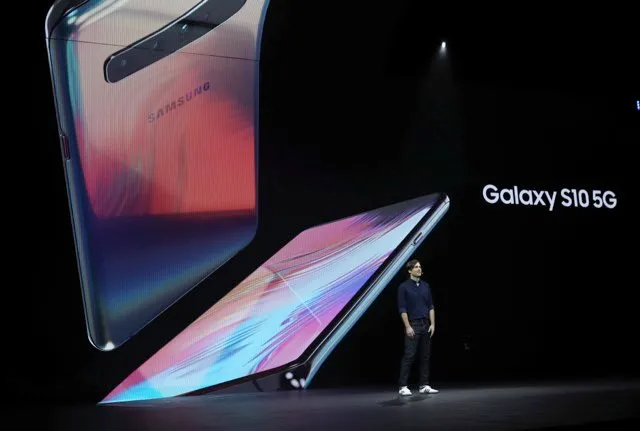What is 5G?
5G is the fifth generation of mobile networks, following on from 2G, 3G and 4G. But while the move from 3G to 4G was all about speeds, 5G is about so much more.
Sure, 5G is extremely quick, but it’s also stable and reliable, with characteristics that will allow it to form the underlying communication networks for connected vehicles, virtual reality worlds and robotics systems.
The new network’s greater capacity will allow these bandwidth-hungry applications to run simultaneously, without having the knock-on effect of slowing down the network for other users.
How does 5G work?
Like its predecessors, 5G is transmitted via radio waves. It will use some frequencies that are in the 4G range, as well as a higher frequency, called millimetre wave technology.
The latter enables the speed and capacity that 5G needs, but this frequency transmits at a shorter wavelength and can’t transmit as effectively through walls. It can even be sensitive to environmental factors such as rain.
To get around this, engineers are looking to install additional hardware to boost transmissions.
When is 5G coming to the UK?
5G technology has already been rolled out across many cities in the UK.
The UK government says it will be rolling out 5G nationwide by 2027, so we won’t be seeing it in autonomous cars and other more advanced applications for another five to 10 years.
How fast is 5G?
Much faster: 5G will bring an expected tenfold surge in speeds compared with today’s 4G networks. It’s predicted that 5G will be as fast as 1 gigabit per second (Gb/s), with some claiming it could reach 10Gb/s.
The benefits of this speed are huge: you could download an HD movie in seconds, allowing you to watch high-quality content even while on the move. In addition to faster speeds, 5G’s ability to provide low latency means even browsing the internet on your device will be much quicker.
The greatest difference will arguably be seen in bandwidth-heavy activities such as online gaming, which will see lag times drastically cut.
Low latency will also be key for the widespread introduction of self-driving cars: thanks to the high speeds of 5G, autonomous vehicles will be able to network with others almost instantly, reacting to events on the road en masse and in real time, boosting safety.
Is my phone compatible with 5G?
No, but it won’t be hard to find one that is. 5G smartphones, such as the Samsung Galaxy S10, OnePlus 7 and Huawei P30, will be on the high street this year. Also, rumour has it that Apple is trying to source a 5G modem in time for its next iPhone launch, expected in September this year.
But there’s no need to rush to the shops. 5G won’t be widely available in 2020, and initially on a limited geographical basis, so it makes sense to bide your time and wait for your upgrade window to roll around.

Will 5G work in rural areas?
Currently, just 41 per cent of rural premises have 4G coverage, according to regulator Ofcom’s 2018 annual report. This compares with 81 per cent in urban areas. There is hope that this will improve with 5G.
Vodafone has already selected a number of rural locations to be first to receive 5G coverage, and a government-backed testbed called 5G RuralFirst is working on setting up the technology outside of urban areas.
Will 5G mean the end of fixed landlines?
5G won’t replace fixed-line broadband, but it could be an effective substitute in some areas. 4G networks are already used to provide ‘fixed wireless access’ – a permanent wireless broadband connection set up between two fixed locations.
Experts think 5G could do the same, but with greater connection speeds and efficiency. So much so that the technology is being considered as a means to provide reliable and fast ‘last mile’ connectivity to homes and businesses, making that physical wire to your home obsolete. It’s fairly simple to set up, so some experts are saying this could be among the first applications of 5G as it starts to roll out this year.